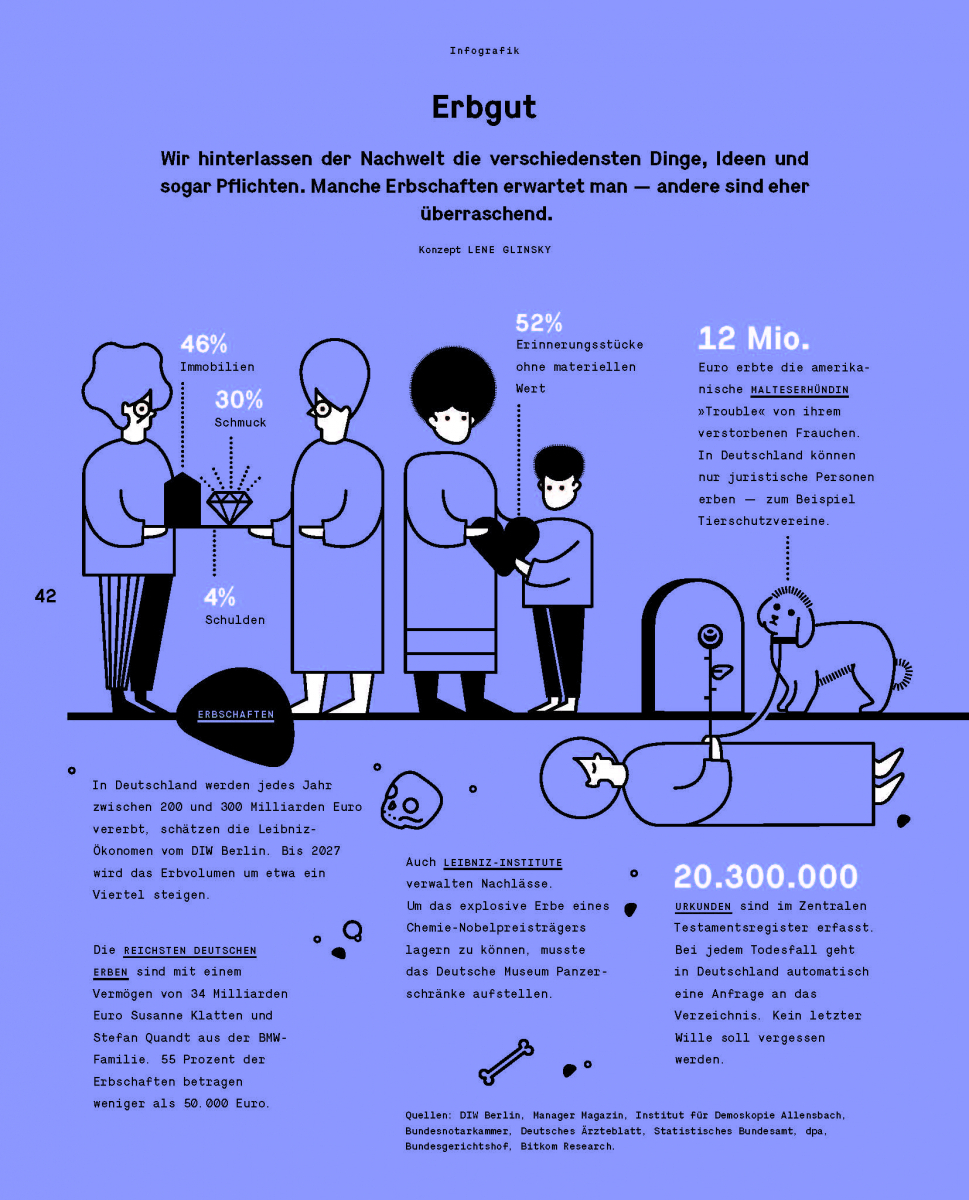Project in the Postgraduate Research Group „Social Consequences of the Transformation of the World of Work in the Second Half of the Twentieth Century“
The transmission of wealth via inheritance is an important social mechanism, which contributes to the stability of our social and economic structure. At the same time, it also transfers structures of social inequality from the past to the future – and maybe even intensifies them.
While research about financial transfers via inheritance (and gifts inter vivos) is well established in academic debates about contemporary German society, the history of inheritance policies and practices in twentieth century Germany remains in the dark. Three questions concerned the research: How did the government regulate the transmission of wealth via inheritance in the law of inheritance and the tax law? Which effects did those regulations have for relations of social inequality? How did they influence the practices of inheritance over time? The research focused on the second half of the twentieth century in West Germany (1949–1990) and compares it with Great Britain.
Ronny Grundig successfully completed his dissertation on November 25, 2020.
Book:
Ronny Grundig, Vermögen vererben Politiken und Praktiken in der Bundesrepublik und Großbritannien 1945-1990, published in the ZZF-Series: Geschichte der Gegenwart; Bd. 28, alltein Verlag (2022)

